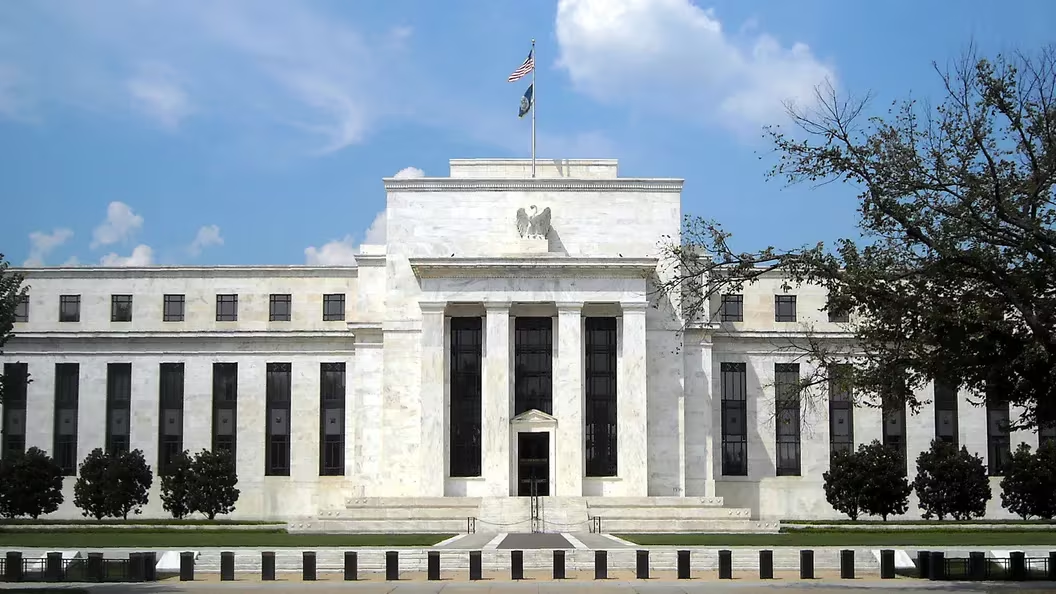Following Donald Trump’s 2024 presidential election victory, the U.S. dollar has soared to its highest level since July 2024, driven by investor expectations of protectionist trade policies and fiscal stimulus measures, significantly impacting emerging market currencies and major currencies like the euro and yen, according to Bloomberg reports.
Dollar Index Skyrockets

The U.S. Dollar Index (DXY) surged to its highest level since July 2024, reaching above 105.00 following Donald Trump’s victory in the U.S. presidential election. This significant uptick was driven by market expectations of Trump’s protectionist policies and potential fiscal stimulus measures.
The dollar’s strength was particularly evident against major currencies:
- Euro (EUR/USD): Forecast to reach 1.05 by September 2024
- British Pound (GBP/USD): Predicted to hit 1.22 by June 2024
- Japanese Yen (USD/JPY): Expected to reach 155 by June 2024
The dollar’s surge reflects a shift in market sentiment, with traders reevaluating their positions on anticipated changes in U.S. economic policies. This unexpected strength has forced investors to reconsider their earlier bets on a declining dollar, highlighting the significant impact of political outcomes on currency markets.
Euro and Yen Tumble
The euro and yen experienced significant volatility following Trump’s victory, with both currencies weakening against the surging US dollar. The euro fell to a four-month low of $1.0740, marking its worst day since March 2020 with a 1.75% drop.
This decline reflected concerns about potential US tariffs on European imports and their impact on the Eurozone’s economic stability2.Meanwhile, the Japanese yen also weakened, falling 1.5% against the dollar. The USD/JPY pair rallied from 151.30 to nearly 154.40, reaching its highest level since late July. This movement was driven by expectations of diverging monetary policies between the Bank of Japan and the Federal Reserve, as well as the yen’s diminished safe-haven appeal in light of Trump’s victory.
Emerging Market Currencies Affected
The surge in the US dollar following Trump’s election victory had a significant impact on emerging market currencies, with many experiencing sharp declines. Currencies of countries with close economic ties to the US or those perceived as vulnerable to potential trade disputes were particularly affected. The Mexican peso, often seen as a barometer for Trump’s trade policies, plummeted to record lows against the dollar.
Other emerging market currencies, including the Brazilian real, South African rand, and Turkish lira, also saw substantial depreciation as investors sought the perceived safety of the US dollar.
- Mexican peso: Hit record lows due to concerns over potential trade restrictions
- Brazilian real, South African rand, Turkish lira: Experienced significant depreciation
- Factors: Investor flight to safety, concerns over potential trade disputes, and anticipation of protectionist policies
These currency movements reflect the broader impact of US political shifts on global financial markets and highlight the interconnectedness of economies in an era of globalization.
Market Factors Behind Surge
The surge in the US dollar following Trump’s election victory was driven by several key market factors. Investors swiftly embraced the “Trump trade”, anticipating a return to policies that could potentially benefit the US economy.
The market’s reaction was based on expectations of:
- Protectionist trade policies that could strengthen domestic industries
- Potential fiscal stimulus measures, including infrastructure spending
- Tax reforms that could boost corporate profits and repatriate overseas funds
- Higher interest rates due to increased government spending and inflation expectations
These factors collectively contributed to the dollar’s strength, as traders positioned themselves for a shift in economic policy. The sharp rise in US Treasury yields, reflecting expectations of higher inflation and interest rates, further bolstered the dollar’s appeal. This market sentiment underscores the significant impact of political outcomes on currency valuations and global financial markets.
Source: Perplexity






